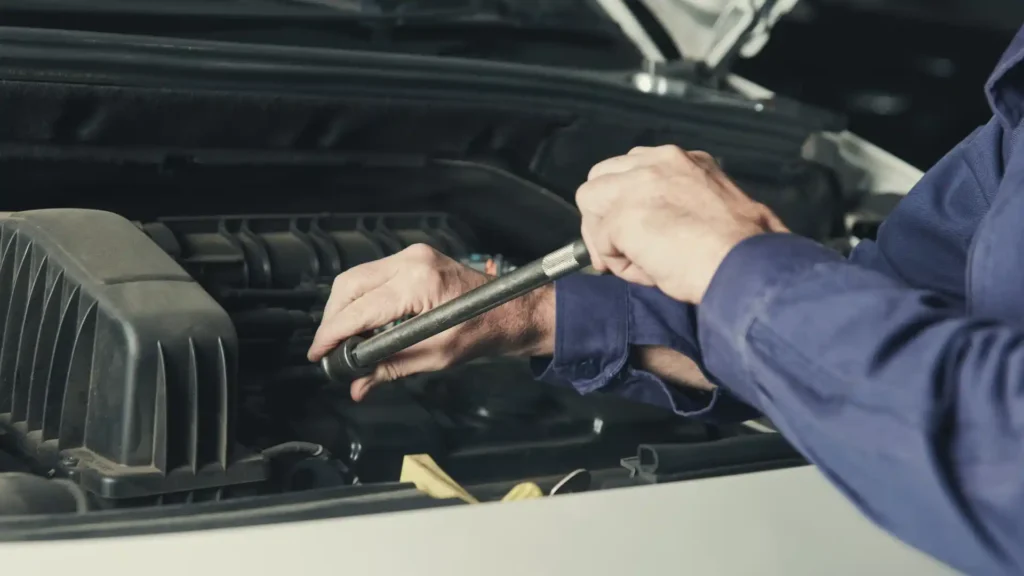Introduction to fuel efficiency
Are rising petrol prices draining your wallet faster than you can say “fill ‘er up”? If so, you’re not alone. With fuel costs on the rise, it’s more important than ever to maximize the fuel efficiency of your petrol-powered car. Not only will this help save you money at the pump, but it also has a positive impact on the environment. In this blog post, we’ll explore a range of tips and techniques to improve your car’s fuel efficiency, from maintenance and tune-ups to driving habits and technology that can make a difference. So buckle up and get ready to discover how simple changes can lead to significant savings for both your wallet and Mother Earth!
Benefits of improving fuel efficiency
Improving fuel efficiency in your petrol-powered car can bring about a multitude of benefits, both for you and the environment. By following some simple tips and adopting certain practices, you can experience these advantages firsthand.
One of the most evident benefits is cost savings. With the rising petrol prices, improving fuel efficiency means you’ll spend less money at the pump. This can make a significant difference in your monthly budget, allowing you to allocate those saved funds towards other expenses or even save them for future investments.
Another advantage is reducing your carbon footprint. Petrol-powered cars contribute to air pollution through their emissions. By improving fuel efficiency, you’re effectively decreasing the amount of harmful pollutants released into the atmosphere. It’s a small step that collectively makes a significant impact on our planet’s health.
Additionally, enhancing fuel efficiency also prolongs the lifespan of your vehicle’s engine. When your car runs more efficiently, there’s less strain on its components, resulting in reduced wear and tear over time. This translates to fewer repair costs and longer intervals between maintenance services.
Moreover, improving fuel efficiency promotes safer driving habits by encouraging smooth acceleration and deceleration techniques. These actions enhance the overall control of your vehicle while reducing instances of sudden braking or rapid acceleration – both contributing factors to accidents on the road.
By consciously working towards better fuel economy, you become an informed consumer who understands how their choices affect not only their own lives but also society as a whole. Your commitment inspires others to follow suit and create positive change together.
So why wait? Start implementing these tips today and enjoy all the benefits of improved fuel efficiency!
Maintenance and tune-ups for your car

When it comes to improving the fuel efficiency of your petrol-powered car, regular maintenance and tune-ups are essential. By keeping your vehicle in top condition, you can ensure it runs at its most efficient level.
Make sure to follow the manufacturer’s recommended maintenance schedule. This includes regular oil changes, air filter replacements, and spark plug inspections. Keeping these components clean and functioning properly can help improve fuel consumption.
In addition to routine maintenance, pay attention to any warning signs or unusual noises from your car. These could indicate underlying issues that may be affecting fuel efficiency. Addressing these problems promptly can prevent further damage and improve overall performance.
Another important aspect of car maintenance is tire care. Underinflated tires increase rolling resistance, which leads to poor fuel economy. Check your tire pressure regularly and inflate them to the recommended levels.
Consider getting a professional tune-up for your vehicle. A trained mechanic can fine-tune various components of your car’s engine for optimal performance.
By taking proper care of your vehicle through regular maintenance and tune-ups, you can maximize fuel efficiency and save on petrol costs in the long run!
Choosing the correct type of petrol
Choosing the correct petrol type is essential for maximizing fuel efficiency in your car. With so many options available at the petrol pump, it can be overwhelming to determine which one is best for your vehicle. However, making an informed decision can make a significant difference in both performance and cost savings.
It’s essential to consider your car’s manufacturer’s recommendations regarding the octane rating. Most vehicles are designed to run efficiently on regular unleaded petrol with an octane rating 87. Higher-octane fuels may not provide any additional benefits unless specified by the manufacturer.
Additionally, you should also take into account the ethanol content in petrol. Ethanol-blended fuels such as E10 or E15 contain a percentage of renewable ethanol derived from crops like corn or sugarcane. While these blends are generally safe for most cars, some older models or high-performance vehicles may require higher-octane and ethanol-free petrol.
Another factor to consider when choosing petrol is its quality and additives. Premium fuels often come with extra detergents that help keep fuel injectors clean and maintain optimal engine performance over time. While they may be slightly more expensive than regular unleaded petrol, using premium fuel periodically can prevent carbon buildup and potential engine problems.
Monitor local prices when filling up your tank, as fluctuating petrol prices can impact overall cost savings. Utilizing smartphone apps or websites that track current prices at nearby stations can help you find cheaper options without compromising quality.
By considering these factors when selecting petrol for your car, you’ll ensure efficient combustion and ultimately improve fuel efficiency while saving money at the pump!
Driving habits that can improve fuel efficiency
Driving habits have a significant impact on the fuel efficiency of petrol-powered cars. By adopting some simple practices, you can improve your vehicle’s mileage and reduce your trips to the petrol station.
Avoid aggressive driving. Rapid acceleration and sudden braking not only increase fuel consumption but also put unnecessary strain on your car’s engine and brakes. Instead, try to drive smoothly and maintain a consistent speed.
Another habit that can boost fuel efficiency is reducing idling time. If you’ll be stopped for over a minute, it’s better to turn off your engine than let it idle. Idling consumes fuel without any productive output.
Additionally, maintaining an appropriate tire pressure is crucial for optimal fuel economy. Under-inflated tires create more rolling resistance, making the engine work harder and burn more fuel. Regularly check your tire pressure and ensure they are inflated according to the manufacturer’s recommendations.
Using cruise control whenever possible can also improve fuel efficiency by helping maintain a steady speed on long drives or highways where traffic conditions allow for its use.
Moreover, planning your routes efficiently will save time and money by minimizing unnecessary miles travelled due to getting lost or encountering heavy traffic congestion.
Reducing excess weight in your vehicle can make a noticeable difference in fuel consumption. Remove any items from the trunk that are unnecessary for your journey, as extra weight puts additional stress on the engine.
By adopting these driving habits consistently, you’ll not only enhance the fuel efficiency of your petrol-powered car but also contribute towards environmental sustainability while enjoying cost savings at the pump!
Using technology to track and improve fuel consumption
With advancements in technology, there are now various tools and apps available that can help you track and improve your fuel consumption. These tools provide valuable insights into your driving habits and offer suggestions for enhancing fuel efficiency.
One popular option is onboard diagnostic (OBD) devices that plug into your car’s OBD port. These devices can collect data on speed, acceleration, braking patterns, and engine performance. By analyzing this information, you can identify areas where you may be wasting fuel or engaging in inefficient driving behaviours.
In addition to OBD devices, there are also smartphone apps that utilize GPS technology to track your driving habits. These apps can provide real-time feedback on excessive idling time or aggressive acceleration. They may even offer personalized tips for improving fuel efficiency based on your driving style.
Another exciting technological advancement is the integration of eco-driving features in modern cars. Some vehicles come equipped with systems that monitor factors such as gear shifting and throttle control to optimize fuel usage automatically.
By using these technologies to monitor your fuel consumption regularly, you’ll have a better understanding of how different driving behaviours impact efficiency. This knowledge empowers you to make conscious choices while behind the wheel and reduce petrol consumption.
Remember, though: while technology can help track fuel consumption trends over time, it’s important not to rely solely on it as a solution for improved efficiency. Combining intelligent driving habits, regular maintenance checks, and choosing the right petrol type will yield the best results when maximizing your vehicle’s fuel economy potential!

Tips for long-distance road trips
Embarking on a long-distance road trip can be an exciting adventure, but you must ensure you’re prepared for the journey ahead. Here are some tips to help make your trip as smooth and enjoyable as possible.
1. Plan your route: Before hitting the road, take some time to plan out your route. Consider any scenic detours or must-see attractions along the way. This will not only add interest to your drive but also give you a chance to stretch your legs and explore new places.
2. Pack smart: When packing for a long-distance road trip, remember that space is limited. Prioritize essentials such as spare tires, emergency kits, water bottles, snacks, and comfortable clothing for driving.
3. Take regular breaks: Sitting in one position for extended periods can lead to discomfort and fatigue. You must take frequent breaks every few hours to stretch your legs and rest your eyes.
4. Stay hydrated: Dehydration can affect concentration levels while driving. Remember to drink plenty of water throughout the journey and avoid excessive caffeine or sugary drinks.
5. Maintain a steady speed: Accelerating and decelerating can significantly impact fuel efficiency on long drives. Try maintaining a constant rate whenever possible without exceeding speed limits.
6. Use cruise control: Utilize cruise control when appropriate during long stretches of highway driving with minimal traffic changes; this feature helps maintain a consistent speed and reduce fuel consumption.
7. Utilize GPS technology: GPS navigation systems or smartphone apps with real-time traffic updates can help you find efficient routes with minimal congestion—saving both time and petrol!
8. Be mindful of petrol prices: Keep an eye on local petrol prices along your route so you can fill up at cheaper stations when available—this minor adjustment could save you money over time!
Remember these tips next time you embark on a long-distance road trip! They will not only help you save on petrol but also ensure a comfortable and enjoyable journey.
Conclusion
Improving the fuel efficiency of your petrol-powered car is not only beneficial for your wallet but also for the environment. By following these fuel efficiency tips, you can reduce your petrol consumption and save money on fuel expenses.
Remember to regularly maintain and tune up your car to ensure it is running efficiently. Choose the correct type of petrol that suits your vehicle’s requirements. Adopt driving habits such as smooth acceleration, consistent speed, and avoiding unnecessary idling to maximize fuel efficiency.
Embrace technology by using apps or devices that can track and improve your fuel consumption. These tools provide valuable insights into your driving behaviours and help you adjust accordingly.
When planning long-distance road trips, consider factors like route optimization, packing light, and maintaining optimal tire pressure to minimize petrol usage.
By implementing these strategies consistently in our daily lives, we can contribute towards reducing our carbon footprint while enjoying significant savings at the pump.